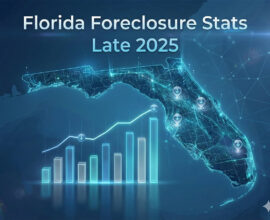How to Use Creative Financing to Buy an Investment Property
Are you a real estate investor seeking to maximize your opportunities in the market?
“Picture this: a world where traditional financing barriers no longer hinder your dreams of purchasing investment properties. Enter the realm of creative financing, a game-changing approach that can revolutionize your real estate ventures.”
We invite you to delve into the captivating realm of creative financing and discover the limitless potential it holds. Prepare to unlock a treasure trove of innovative strategies, empowering you to seize investment opportunities others might overlook.
Within these lines lies the key to transforming your investment game.
Imagine leveraging techniques such as seller financing, lease options, or even tapping into the power of crowdfunding. These groundbreaking methods will reshape your perception of what is possible, opening doors to properties you once thought were out of reach.
Don’t let conventional financing restrict your potential. Embark on this enlightening journey as we unravel the secrets of creative financing, empowering you to make your mark in the world of real estate investment. Get ready to take your investment portfolio to new heights — where the sky’s the limit!
By embracing creative financing, you can navigate the investment landscape with greater flexibility, expand your portfolio, and unlock unparalleled potential for financial success.
Understanding Creative Financing in Real Estate
According to Forbes, creative financing refers to unconventional and innovative methods to secure funding for various purposes, such as purchasing assets or properties. It involves thinking outside the box and finding alternative solutions when traditional financing options are limited. Creative financing techniques often involve leveraging unique arrangements, partnerships, or financial instruments to access capital. These methods can include strategies like:
| Lease Options | Rent-to-own arrangement with future purchase options. |
| Home Equity Line of Credit | Borrow against home’s equity as credit. |
| Personal Loan | Borrowed funds for personal expenses. |
| Private Money Lenders | Non-institutional lenders providing real estate financing. |
| Hard Money Loans | High-interest loans secured by a property. |
| Cash-Out Refinance | Replacing existing mortgage to access equity. |
| Joint Ventures | Collaborative investment partnership for projects. |
| FHA Loans | Government-backed loans with a low down payment. |
| Self-Directed IRA | IRA funds invested in real estate. |
| Crowdfunding | Collective funding for real estate projects. |
| Seller Financing | Seller provides financing for property purchase. |
This table showcases seven dynamic strategies that real estate investors can use. By exploring these non-traditional approaches, investors can navigate financial constraints, unlock opportunities, and achieve their goals in ways that conventional financing may not allow. We will delve into each technique, providing comprehensive insights and practical guidance on how to leverage them effectively.
By embracing creative financing, you can navigate the investment landscape with greater flexibility, expand your portfolio, and unlock unparalleled potential for financial success. To learn more about Enhancing Efficiency and Organization in Real Estate Investing, visit our education section on Property Onion.
Lease Options
Lease options are an innovative financing option in real estate investing. With a lease option, an investor leases a property from the owner with the right to purchase it at a later date. This arrangement allows the investor to control and profit from the property without an immediate purchase. They can secure the property at a predetermined price, giving them time to build equity, generate rental income, or negotiate favorable terms. Lease options offer flexibility, potential appreciation, and a lower upfront investment compared to traditional purchasing methods.
Home Equity Line of Credit
A Home Equity Line of Credit (HELOC) is a creative financing option in real estate investing that utilizes the equity in a property. By tapping into the equity, investors can access a line of credit to fund their real estate ventures. With a HELOC, the investor can borrow against the value of their property, enabling them to acquire investment properties or renovate existing ones. This flexible financing option offers lower interest rates compared to traditional loans, making it an attractive choice for investors seeking additional funds for their real estate endeavors.
Personal Loans
Personal loans can serve as a creative financing option in real estate investing. These loans, obtained from banks or online lenders, provide investors with access to funds for purchasing investment properties. Unlike traditional mortgage loans, personal loans are typically unsecured, meaning they do not require collateral. This flexibility allows investors to quickly secure financing without tying up other assets. However, it’s important to consider higher interest rates and shorter repayment terms associated with personal loans, making them suitable for short-term investments or smaller-scale real estate projects.
This alternative financing source allows investors to secure capital for investment properties quickly, enabling them to seize opportunities that may not be possible with conventional financing.
Private Money Lenders
Private money lenders are a valuable creative financing option in real estate investing. These individuals or organizations provide loans to investors based on the property’s value, without the need for traditional bank approval. Private money lenders offer faster access to funds, flexible terms, and less stringent qualification requirements. They can be individuals, private investment firms, or crowdfunding platforms. This alternative financing source allows investors to secure capital for investment properties quickly, enabling them to seize opportunities that may not be possible with conventional financing.
Hard Money Loans
Hard money loans are a dynamic creative financing option in real estate investing. These short-term loans are secured by the property itself rather than the borrower’s creditworthiness. Hard money lenders focus on the property’s value and potential, allowing investors to secure financing quickly, often within days. Although interest rates and fees are higher, hard money loans offer flexibility, and faster approvals, and are ideal for investors seeking to acquire distressed properties, fix-and-flip projects, or time-sensitive opportunities in the real estate market.
Cash-Out Refinance
Cash-out refinance is a creative financing option in real estate investing. It involves refinancing an existing mortgage for a higher loan amount, allowing investors to receive cash based on the property’s equity. By tapping into this equity, investors can access funds to finance new investments, property improvements, or debt consolidation. Cash-out refinancing offers lower interest rates compared to other types of loans, making it an attractive choice for investors looking to leverage their property’s value and unlock additional capital for real estate ventures.
It’s a collaborative approach that opens doors to diverse investment opportunities and maximizes the potential for success.
Joint Ventures
Joint ventures are a strategic and creative financing option in real estate investing. In this arrangement, two or more investors pool their resources, skills, and capital to pursue a common real estate project or investment. By partnering with others, investors can access additional funds, expertise, and network connections. Joint ventures provide the opportunity to share risks and rewards, leverage complementary strengths, and tackle larger and more complex real estate projects that might be challenging to pursue individually. It’s a collaborative approach that opens doors to diverse investment opportunities and maximizes the potential for success.
FHA Loans
FHA loans, backed by the Federal Housing Administration, are a creative financing option in real estate investing. These loans are designed to assist first-time homebuyers, but they can also be used by real estate investors. FHA loans offer low down payment requirements and more lenient credit qualifications compared to traditional loans. This makes them attractive for investors looking to acquire properties with minimal upfront costs. However, FHA loans have specific occupancy requirements and restrictions on the number of properties an investor can finance.
Self-Directed IRA
A Self-Directed Individual Retirement Account (IRA) is a creative financing option in real estate investing. It allows investors to use their IRA funds to invest in real estate. With a self-directed IRA, investors have control over their investment decisions, including the purchase and management of real estate properties. This option provides tax advantages, as earnings and gains are tax-deferred or tax-free within the IRA. Self-directed IRAs offer flexibility and the opportunity to diversify retirement portfolios through real estate investments.
Crowdfunding
Crowdfunding is a creative financing option in real estate investing that harnesses the power of the collective. It involves pooling funds from multiple investors through online platforms to finance real estate projects. Investors can contribute varying amounts, and in return, they receive a stake in the project’s potential returns. Crowdfunding provides access to a wider investor network, allowing individuals to invest in real estate in smaller amounts. This option offers diversification, transparency, and the opportunity to participate in projects that were previously accessible only to institutional investors.
Seller financing
Seller financing is a creative financing option in real estate investing where the property seller acts as the lender. Instead of relying on traditional bank loans, the seller provides financing to the buyer. In this arrangement, the buyer makes regular payments directly to the seller, often with an agreed-upon interest rate and repayment schedule. Seller financing offers flexibility, bypasses stringent bank requirements, and allows investors to acquire properties with limited or no access to traditional financing. It can be a win-win solution for both parties involved in the transaction.
These creative financing methods offer potential solutions for investors facing credit and down payment challenges.
Can You Purchase a House with Bad Credit and No Down Payment?
Real estate investors can potentially purchase a house with bad credit and no down payment through creative financing options. Private money lenders or hard money loans, which focus on property value rather than credit, provide alternative funding sources. Seller financing allows investors to negotiate terms directly with the property seller, potentially bypassing the need for a down payment. Lease options provide flexibility by leasing the property with an option to buy in the future. These creative financing methods offer potential solutions for investors facing credit and down payment challenges.
Unlock valuable insights into our comprehensive approach to creative financing by subscribing to our premium membership on Property Onion, guided by our knowledgeable and dedicated agents.
Embrace the power of creative financing to unlock new possibilities and maximize your house-hacking investment success.
Takeaway!
In conclusion, creative financing presents an exciting opportunity for savvy investors to acquire investment properties. You can overcome traditional barriers and seize lucrative deals by thinking outside the box and exploring alternative financing methods. This approach offers flexibility, allows for creative negotiation, and expands your investment options. Embrace the power of creative financing to unlock new possibilities and maximize your house-hacking investment success.








